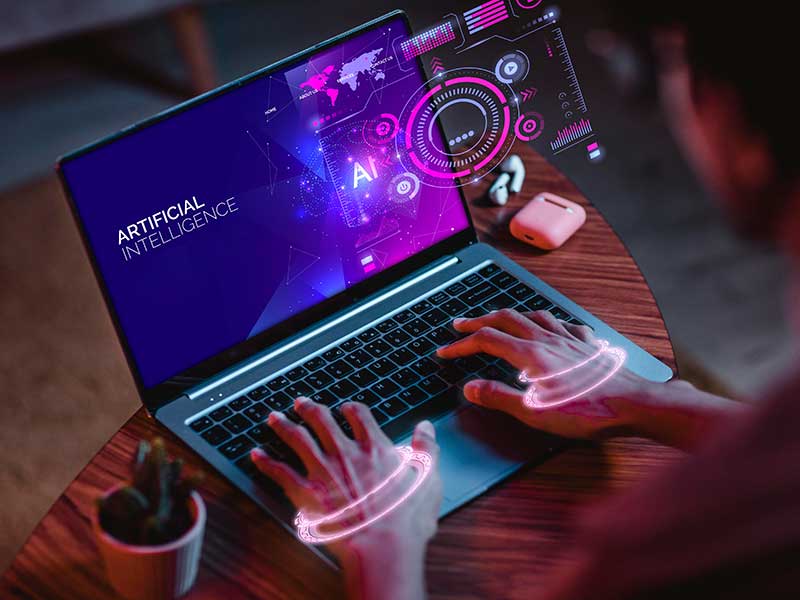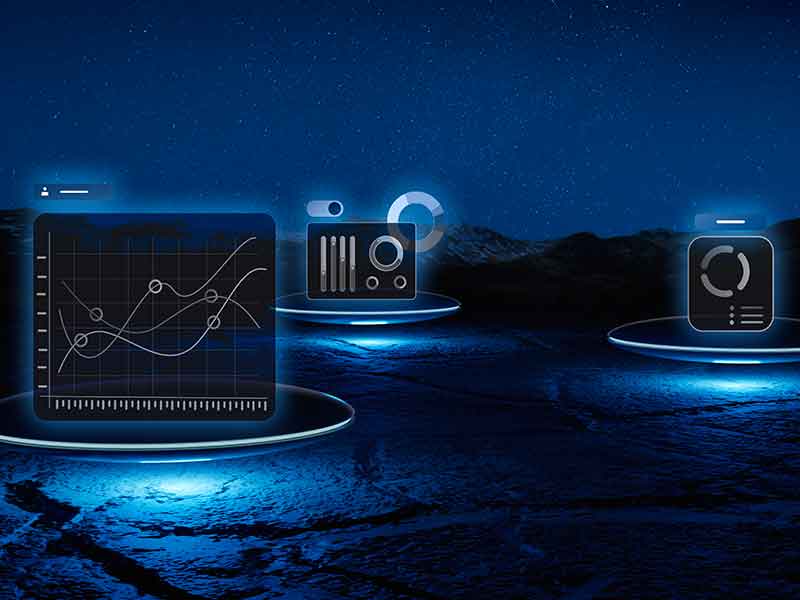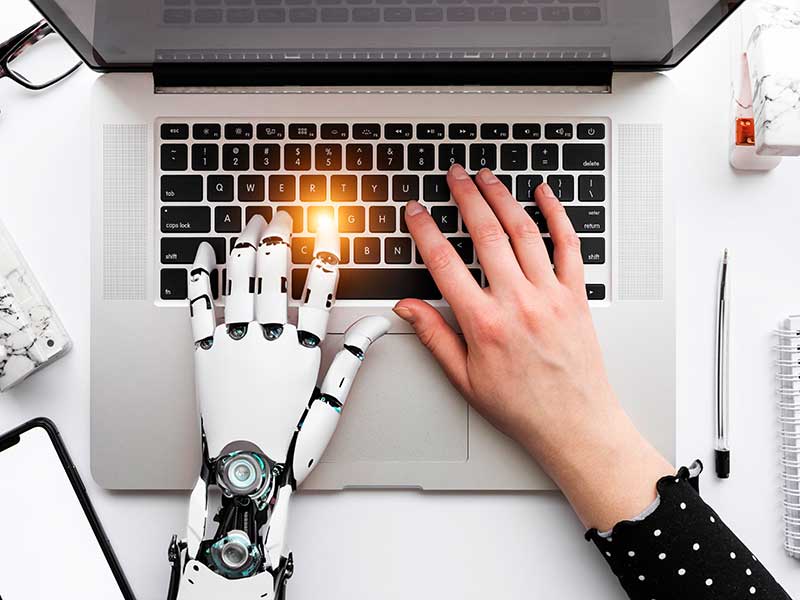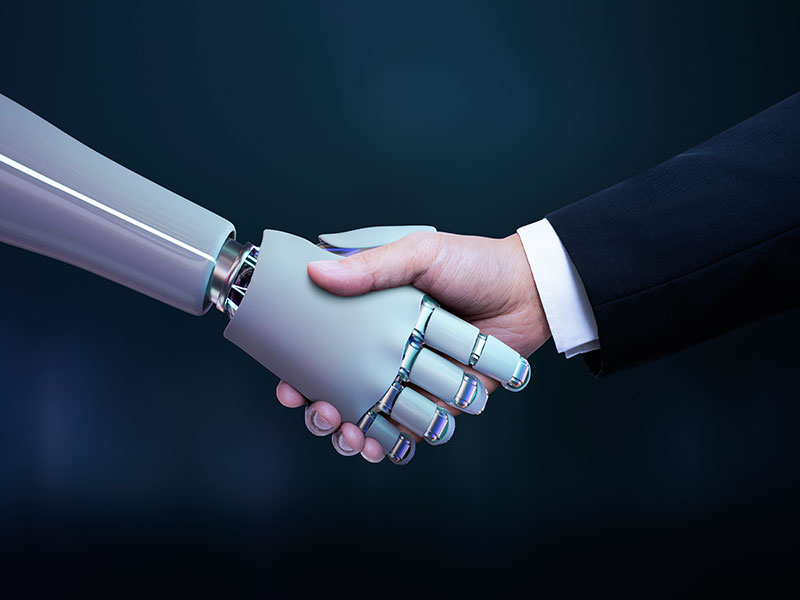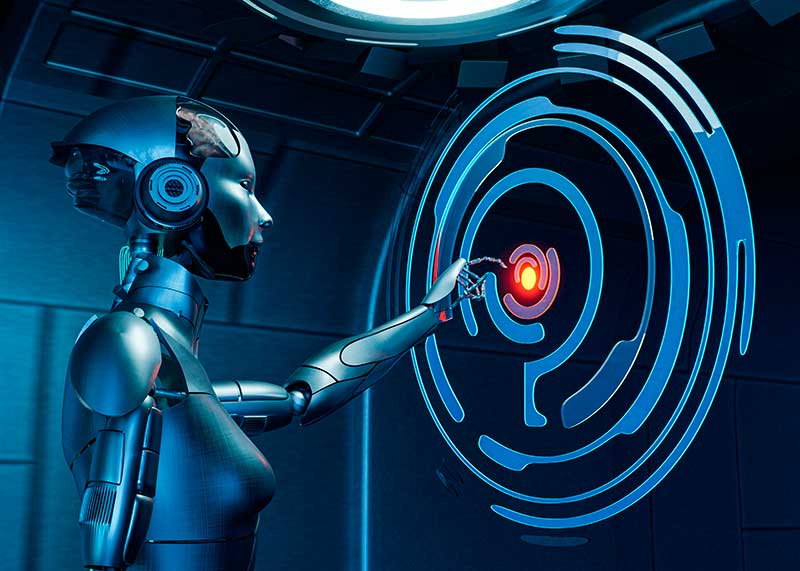The implementation of Artificial Intelligence (AI) has brought significant benefits to digital marketers by enhancing efficiency and effectiveness in various areas such as customer segmentation, ad targeting, and data analysis.
With the ability to process massive volumes of data quickly and accurately, AI technologies provide insights that assist marketers in making strategic decisions.
Moreover, AI can personalize customer experiences by analyzing individual behavior and preferences, leading to increased customer engagement and conversion rates.
AI is a powerful tool that has the potential to revolutionize digital marketing practices and outcomes.
In this post, we will cover the top 10 ways that AI will impact digital marketing in the not too distant future.
1. Personalized Customer Experiences
Artificial intelligence (AI) is revolutionizing the way companies are able to create personalized customer experiences in digital marketing. AI enables companies to analyze vast amounts of data about customer behaviors, preferences, and interactions, allowing them to tailor marketing campaigns and messages with unprecedented precision.
By leveraging AI-powered algorithms, companies can deliver
personalized product recommendations, targeted advertisements, and customized content to individual customers based on their past interactions and current preferences.
For example, e-commerce platforms use AI to provide personalized product recommendations to customers based on their browsing and purchase history, enhancing the overall shopping experience.
Moreover, AI enhances the efficiency and effectiveness of digital marketing campaigns by enabling real-time optimization and targeting.
Through machine learning algorithms, companies can continuously refine their marketing strategies based on customer responses and engagement metrics.
For instance, AI-powered chatbots are being used to provide personalized customer support and recommendations in real-time, enhancing the overall customer experience.
The advancement of artificial intelligence will enable companies to create highly personalized experiences and to develop digital marketing campaigns that resonate with individual customers more deeply than was previously possible.
Embracing AI is not so much a choice as a matter of when, and early adopters will reap the greatest benefits.
2. The Use of Predictive Analytics
Artificial intelligence (AI) and predictive analytics are revolutionizing digital marketing by providing businesses with the tools to better understand their customers and create more targeted, effective marketing campaigns.
AI can analyze large volumes of consumer data to uncover patterns and trends, enabling marketers to make data-driven decisions and anticipate customer behavior.
This allows for personalized and relevant marketing strategies that resonate with the target audience.
One notable example of how AI and predictive analytics have improved digital marketing is through the use of recommendation engines.
Companies like Amazon and Netflix use AI algorithms to analyze customer preferences and browsing behavior to recommend products and content, leading to increased sales and customer satisfaction.
Additionally, predictive analytics can help marketers forecast customer lifetime value, identify high-value segments, and optimize marketing spend for maximum ROI.
Another example is the use of AI-powered chatbots in digital marketing campaigns.
Chatbots can engage with customers in real-time, providing personalized recommendations, answering queries, and guiding them through the sales funnel.
This improves customer experience and drives conversions.
In essence, AI and predictive analytics are invaluable tools that enable businesses to refine their digital marketing strategies, drive engagement, and boost sales as we move into the future.
3. Enhanced Customer Service
Artificial Intelligence (AI) is poised to dramatically enhance customer service in 2024 and beyond.
By leveraging AI capabilities, businesses can provide more personalized, efficient, and predictive experiences for their customers.
To start with, AI-powered chatbots and virtual assistants can
handle a large volume of queries, delivering immediate responses to customers around the clock. This not only ensures quick resolution of customer issues but also frees up human agents to handle more complex tasks.
Moreover, machine learning, a subset of AI, can help in predicting customer behavior by analyzing historical data and identifying patterns.
This predictive analysis can be used to anticipate customer needs and provide personalized recommendations, enhancing overall customer satisfaction.
For instance, streaming services like Netflix already use AI to recommend shows based on viewers’ preferences.
AI can also be instrumental in voice recognition technology.
Companies like Amazon and Google have already embraced this technology, allowing customers to interact with their devices using voice commands.
In 2024 and beyond, we can expect more businesses to adopt this technology, making customer interactions smoother and more natural.
Artificial intelligence will revolutionize customer service by enhancing efficiency, personalization, and predictive capabilities.
It’s an exciting prospect that businesses should prepare for in order to stay competitive in the evolving market landscape.
4. Augmented Human Intelligence
Artificial intelligence (AI) is revolutionizing all industries, including marketing.
AI can augment human intelligence through automation, predictive analytics, and advanced data processing.
For example, AI algorithms can analyze large amounts of customer data to reveal patterns and insights that surpass human capabilities.
These insights can empower marketers to make better-informed decisions, ultimately improving marketing outcomes.
AI can also augment human intelligence by automating repetitive tasks. In addition to improving efficiency, this enables marketers to focus on more strategic tasks.
For example, AI can automate email marketing campaigns, social media posts, and even content creation.
By automating these tasks, marketers can spend more time on creative and strategic aspects of marketing, leading to better outcomes.
Moreover, AI can enhance human intelligence and marketing outcomes by utilizing advanced targeting and personalization.
It achieves this by analyzing customer behavior, preferences, and purchase history. This analysis helps marketers deliver highly personalized messages and offers that resonate with customers at an individual level.
Such a high level of personalization can result in increased engagement, conversion rates, and customer loyalty.
In essence, artificial intelligence (AI) is a powerful tool that can enhance human intelligence and significantly improve marketing results.
Marketers can leverage AI to gain deeper insights, automate tasks, deliver personalized experiences, and ultimately achieve better results.
5. Low/No-Code Software Engineering
Artificial intelligence (AI) is expected to revolutionize the software engineering industry by automating various tasks, improving efficiency, and enhancing the quality of software development.
One way AI will improve software engineering is through intelligent code generation.
AI can analyze existing codebases to identify patterns and generate
code snippets, reducing the time and effort required for coding. For instance, OpenAI’s Codex uses natural language input to generate code, making it easier for developers to write complex algorithms.
AI-powered testing is another area where AI will improve software engineering.
By leveraging machine learning algorithms, AI can identify potential bugs and performance issues in the code, thereby enhancing the quality of the software.
For example, companies like Appvance use AI to automate test case generation and execution, leading to more comprehensive testing coverage and faster release cycles.
Furthermore, AI can enhance the software development process by providing intelligent recommendations for design patterns, architecture decisions, and performance optimizations.
Tools like Microsoft’s IntelliCode use AI to provide context-aware code suggestions, helping developers write better code faster.
Artificial intelligence holds the potential to significantly improve software engineering by automating coding tasks, enhancing testing processes, and providing intelligent recommendations, ultimately leading to more efficient and high-quality software development.
6. Business Ethics Improvements
Artificial intelligence (AI) possesses the ability to significantly enhance ethical considerations in marketing.
First, AI can aid in ensuring transparency, a critical ethical facet of marketing.
With AI-powered tools, companies can clearly demonstrate how they collect, store, and use consumer data, thereby enhancing trust
and ethically sound practices. For instance, IBM’s AI Fairness 360 is a toolkit designed to examine, report, and mitigate discrimination and bias in machine learning models throughout the product lifecycle.
Secondly, AI can assist in maintaining authenticity in marketing strategies.
AI technologies like deep learning algorithms can identify counterfeit products or false advertising claims, thereby protecting consumers from unethical marketing practices.
An example is Amazon’s Project Zero, which uses machine learning to automatically scan and remove suspected counterfeits.
Moreover, AI can help uphold privacy standards by automating data anonymization processes.
A case in point is Google’s Differential Privacy library which uses AI to provide anonymous insights from datasets without compromising individual privacy.
While the use of artificial intelligence in marketing raises its own ethical questions, it is undeniable that AI also offers significant opportunities to enhance ethical considerations in marketing by promoting transparency, ensuring authenticity, and protecting consumer privacy.
7. Campaign Targeting
Artificial intelligence (AI) is revolutionizing the approach to targeting marketing campaigns, leading to increased conversion rates and improved profit margins.
By harnessing AI-powered algorithms, marketers can analyze deep customer data to identify patterns and preferences.
This analysis enables highly targeted and personalized marketing
efforts with high return rates. Additionally, AI facilitates real-time optimization of marketing campaigns by continuously learning from customer interactions and adjusting strategies accordingly.
This dynamic approach ensures that marketing efforts consistently align with consumer preferences, resulting in heightened engagement and ultimately, increased conversion rates and profitability.
Consequently, businesses can achieve improved ROI and profit margins through more efficient and effective marketing strategies driven by AI’s targeting and personalization capabilities.
8. Automated Content Creation
Artificial intelligence (AI) is poised to revolutionize content creation in 2024 and beyond, fundamentally altering the way content is generated, curated, and consumed.
With advancements in natural language processing and machine learning, AI will enable automated content creation at an unprecedented scale.
For instance, AI-powered tools can generate personalized and targeted marketing content based on user preferences and behavior, enhancing customer engagement.
Furthermore, AI can streamline content creation processes by automating tasks such as data analysis, trend identification, and content optimization, allowing creators to focus on more strategic aspects of content strategy.
Additionally, AI-driven content generation will extend to diverse formats including articles, videos, and social media posts, thereby increasing efficiency and enabling rapid adaptation to evolving consumer preferences.
As AI continues to evolve, it will empower content creators to deliver more compelling and impactful experiences while leveraging data-driven insights to drive business growth.
Summary
Artificial Intelligence (AI) is set to revolutionize the marketing landscape in 2024 and beyond. With AI becoming increasingly sophisticated, it will enable marketers to gain deeper insights into consumer behavior and preferences. AI-powered tools will streamline data analysis, automate content creation, and optimize advertising campaigns, leading to more efficient and effective marketing efforts. Additionally, AI will enhance customer experiences through chatbots and virtual assistants, providing real-time support and personalized recommendations. As AI continues to evolve, its impact on marketing will be transformative, reshaping the way brands engage with and influence their target audiences.

